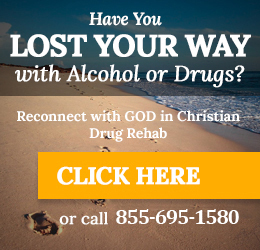What exactly is drug rehab treatment and how does it differ from other forms of treatment, such as outpatient counseling, 12-step programs, or hospitalization?
Initial Drug Rehab Treatment Assessment
 When you first start drug rehab treatment you will undergo an initial assessment. This will often start with an interview asking you questions such as:
When you first start drug rehab treatment you will undergo an initial assessment. This will often start with an interview asking you questions such as:
- What drugs have you been using?
- How much have you been taking?
- How long have you been taking them?
- How much alcohol are you drinking?
- Have you experienced any blackouts or memory loss?
- Have you ever had seizures or other severe withdrawal symptoms?
- Do you have any allergies?
It is critical that you are completely honest during this assessment because it will guide the drug rehab treatment program in how to handle your detox from drugs and alcohol with as little discomfort as possible.
A medical doctor will usually be the next person to see you. He will take your blood pressure, your temperature, and do a general exam. Some drug rehabs may take blood and urine samples for testing.
The medical doctor will prescribe a detox plan, which may include some medication to ease symptoms. For addiction to opiates such as oxycodone this might include Suboxone. For alcohol they may use an anxiolytic to calm the nervous system.
Drug Rehab Detox Treatment
How a rehab does detox is incredibly important. It is critical not only in making sure you don’t bolt from treatment, but also in ensuring no damage is done. Alcohol withdrawal in particular can further damage memory and the brain’s executive functioning if not done properly. In fact, some specialists believe most damage to the brain happens during withdrawal stages in drinking. For example, binge drinkers do the most damage to their memory and executive functioning after the binge and during the hangover period – the hangover is simply your body detoxing after being poisoned.
Sometimes a psychiatrist will assess you before the drug rehab detox treatment, but many will also want to redo the assessment after you have detoxed so they have a clearer picture of your mental state. The psychiatrist will assess for depression, bipolar disorder, PTSD, compulsive behavior, and other disorders and develop a plan for treatment.
Undiagnosed or undertreated clinical depression and other psychiatric disorders are one of the biggest reasons people relapse after treatment. Some people simply stop taking antidepressants even after they have been diagnosed as meeting the criteria for clinical depression. This is counterproductive and often leads to relapse.
Because anti-depressants do not get you “high” like other drugs, there is no reason to refuse them if you are truly clinically depressed. Beware of judgmental people in 12-step meetings who think they are doctors. No one in a 12-step room should be diagnosing psychiatric issues.
Drug Rehab Treatment Program
After detox, the main drug rehab treatment begins. This will include one-on-one talks with a therapist but will mostly be in the form of group therapy. This is because studies have shown that the group process is by far the most effective in drug addiction treatment.
Most drug rehabs will also introduce you to 12-step programs while in treatment. They may have in-house 12-step meetings if they are a large treatment center, or may take you to community meetings if they are a smaller treatment program.
Most rehabs will also offer some specialized forms of therapy, such as motivational interviewing, drama or art therapy, equine therapy, or an experiential program.
During rehab the treatment will vary depending on a number of factors:
- Your specific psychiatric and/or medical issues
- The type of drug rehab you choose
- The cost of the rehab you choose
For example, if you go to a very large rehab with hundreds of beds, it is unlikely that you will get a lot of individual therapy. This is not a bad thing necessarily – since group therapy is far more effective. However, if you have any underlying psychiatric diagnoses, you definitely want to be working with a psychiatrist at least once a week if not more to manage any changes in medication and discuss your mood and anxiety levels.
Some of the more exclusive rehabs will offer alternative and complementary treatments such as saunas, massages, acupuncture, and neurofeedback. For people with chronic pain issues, these can be very helpful.
A note on saunas: there is no scientific evidence that they actually aid in detox from drugs and alcohol. They are relaxing however, so as long as you do not have high blood pressure or any other underlying health issues that put you at risk, they are fine to do. However, they are NOT a substitute for a legitimate medically supervised detox.
Rehab Aftercare Planning
Toward the end of your drug rehab treatment program you will begin to do aftercare planning. If you live near the rehab, they may offer free outpatient counseling for weeks after discharge. Some may have special alumni meetings on a regular basis that you can attend.
Most aftercare planning involves creating a contract, essentially with yourself, to follow certain recommendations that your therapist believes will give you the best chance of sustained sobriety. This might include private or group therapy when you return home, finding a sponsor at a 12-step group within a certain period of time, and follow-up calls with the rehab to see how you are doing.
For some, the aftercare plan may include a sober living house, especially if you seem particularly vulnerable to triggers in your home environment. Some people may also need legal help or career counseling as part of re-integrating back into society.
If you came to the rehab through an interventionist who is also a case manager, they will likely be part of the aftercare planning.
Addiction Treatment Discharge
The day has come. You have completed anywhere from 30 days to 6 months in an addiction treatment center, and you are ready to go home. It can be exhilarating and terrifying at the same time. Do you have a strong enough foundation for sustained recovery? Will your family and friends support you? How will you deal with your old drinking and drugging friends?
It is normal to have anxiety about returning home, and this is why a solid aftercare and discharge plan is critical. However, a plan only works if you actually stick to it. You just committed yourself to 30 or more days in rehab; don’t sell yourself short by not taking the steps you need to take when you return home.
Tired of Struggling with Your Addiction?
We are Here to Help – Call us Now!



